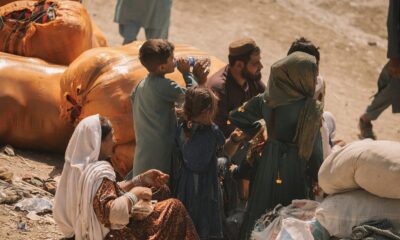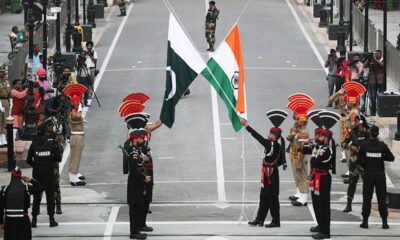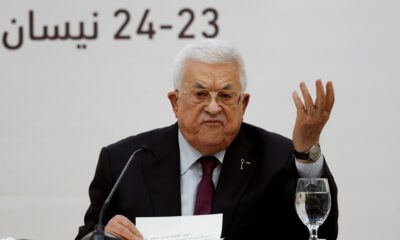Health
Russian fighting destroys, damages nearly 400 hospitals, medical centres, Zelenskiy says
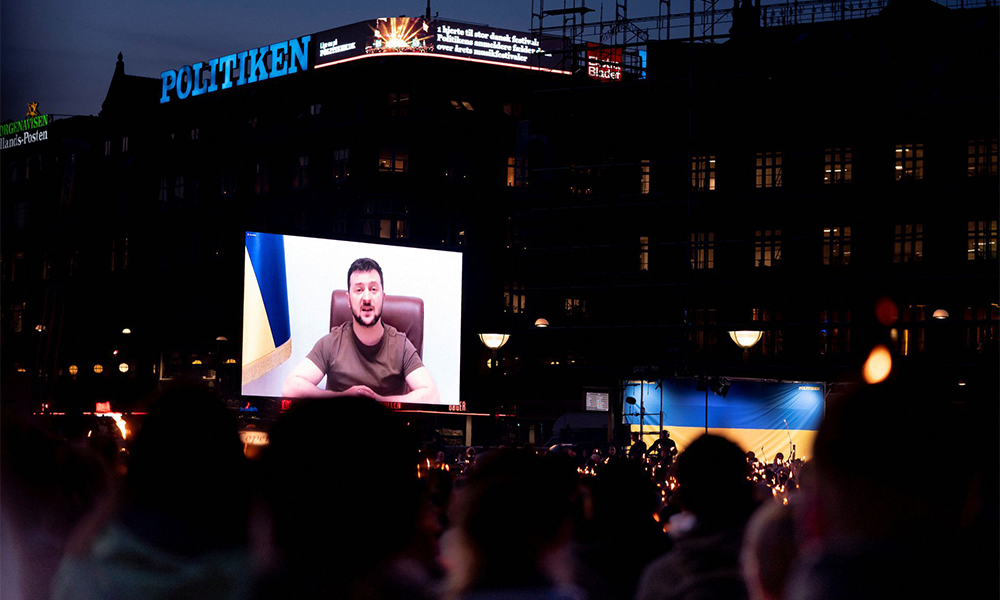
Russia’s invasion of Ukraine has devastated hundreds of hospitals and other medical institutions and left doctors without drugs to tackle cancer or the ability to perform surgery, President Volodymyr Zelenskiy said.
Zelenskiy said many places lacked even basic antibiotics in eastern and southern Ukraine, the main battlefields.
“If you consider just medical infrastructure, as of today Russian troops have destroyed or damaged nearly 400 healthcare institutions: hospitals, maternity wards, outpatient clinics,” Zelenskiy said in a video address to a medical charity group on Thursday.
In areas occupied by Russian forces the situation was catastrophic, he said.
“This amounts to a complete lack of medication for cancer patients. It means extreme difficulties or a complete lack of insulin for diabetes. It is impossible to carry out surgery. It even means, quite simply, a lack of antibiotics.”
In one of the most widely denounced acts of the war, a maternity hospital was all but destroyed on March 9 in the besieged port city of Mariupol. Russia alleged pictures of the attack were staged and said the site had been used by armed Ukrainian groups.
The Kremlin says it targets only military or strategic sites and does not target civilians. Ukraine daily reports civilian casualties from Russian shelling and fighting, and accuses Russia of war crimes. Russia denies the allegations.
Pavlo Kyrylenko, governor of Donetsk region, said 25 people had been injured in intense shelling in the town of Kramatorsk, site of a railway station bombing last month in which more than 50 died. He said a total of 32 residential buildings had been damaged in the shelling.
Reuters could not immediately verify battlefield reports by Russia and Ukraine.
Russia calls its actions in Ukraine a “special operation” to disarm Ukraine and protect it from fascists. Ukraine and the West say the fascist allegation is baseless and that the war is an unprovoked act of aggression. More than 5 million Ukrainians have fled abroad since the start of the invasion.
Russia has turned its heaviest firepower on Ukraine’s east and south, after failing to take the capital Kyiv. The new front is aimed at limiting Ukraine’s access to the Black Sea, vital for its grain and metal exports, and linking Russian-controlled territory in the east to Crimea, seized by Moscow in 2014.
In the port city of Mariupol an estimated 200 civilians, along with Ukrainian resistance fighters, are trapped undergound in the Azovstal steel plant with little food or water.
The steel works was rocked by heavy explosions on Thursday as Russian forces fought for control of Ukraine’s last stronghold and the United Nations rushed to evacuate civilians.
President Vladimir Putin said Russia was prepared to provide safe passage for the civilians but reiterated calls for Ukrainian forces inside to disarm.
Putin declared victory over Mariupol on April 21 and ordered his forces to seal off the Soviet-era plant but not venture inside its underground tunnel network.
Ukraine’s stubborn defence of Azovstal has underlined Russia’s failure to take major cities in a 10-week-old war that has united Western powers in arming Kyiv and punishing Moscow with sanctions.
Clinging on desperately, Ukrainian fighters have reported fierce battles with Russian troops in Azovstal.
A Ukrainian fighter who said he was holed up in Azovstal accused Russian forces of breaching the plant’s defences for a third day despite an earlier pledge by Moscow to pause military activity to permit civilian evacuations.
“Heavy, bloody fighting is going on,” said Captain Sviatoslav Palamar of Ukraine’s Azov Regiment. “Yet again, the Russians have not kept the promise of a ceasefire.” Reuters could not independently verify his account or location.
The Kremlin denies Ukrainian allegations that Russian troops stormed the plant in recent days.
Aerial footage of the plant, released Thursday by Ukraine’s Azov Regiment, showed three explosions striking different parts of the vast complex, which was engulfed in heavy, dark smoke.
Reuters verified the footage location by matching buildings with satellite imagery, but was unable to determine when the video was filmed.
Russia’s military promised to pause its activity for the next two days to allow civilians to leave. The Kremlin said humanitarian corridors from the plant were in place.
Ukrainian Deputy Prime Minister Iryna Vereshchuk said on Thursday that people would be evacuated from Mariupol on Friday at 1200 local time (0900 GMT).
Sweeping sanctions from Washington and European allies have hobbled Russia’s $1.8 trillion economy, while billions of dollars worth of military aid has helped Ukraine frustrate the invasion.
European Union countries are “almost there” in agreeing the bloc’s proposed new package of sanctions against Russia, including an oil embargo, EU foreign policy chief Josep Borrell said. read more
The Kremlin said Russia was weighing responses to the EU plan.
Ukrainian officials have warned that Russia might step up its offensive before May 9, when Moscow commemorates the Soviet Union’s victory over Nazi Germany in World War Two.
Health
Health services to be expanded urgently for return refugees at Torkham border
Since 1 April at least 44,900 people have returned, with around 58% of them children, according to the UN Refugee Agency (UNHCR).
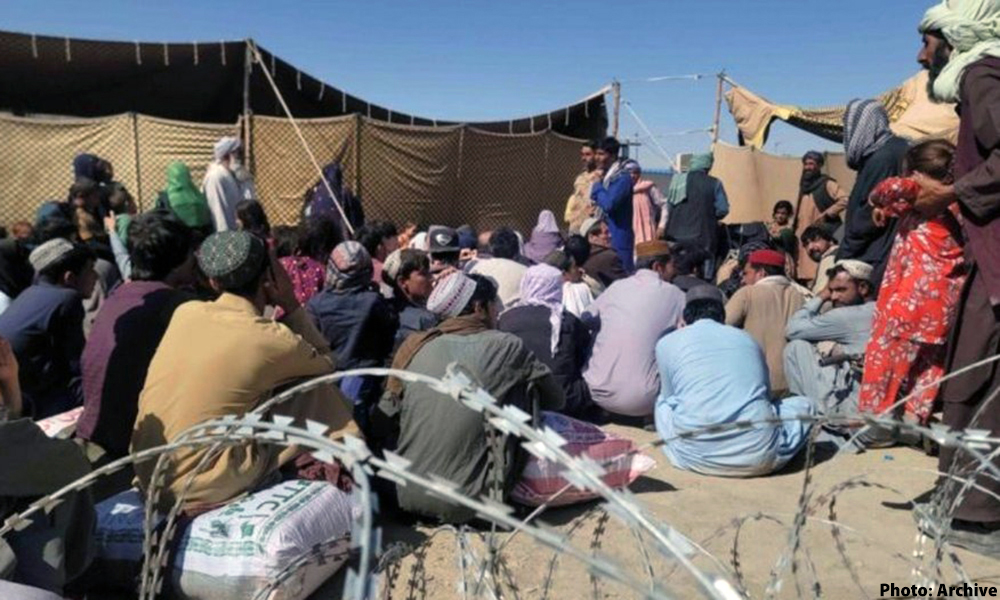
Afghanistan’s health ministry said Tuesday it is expanding health services at Torkham in Nangarhar to cope with the growing number of returning refugees from Pakistan.
According to a statement issued by the ministry, a coordination meeting was recently held to discuss the expansion of health services.
The meeting was chaired by Mawlawi Aminullah Sharif, Director of Public Health in Nangarhar Province, and attended by representatives from various organizations including the World Health Organization (WHO), UNICEF, and other partners.
The meeting focused on improving emergency preparedness and response, enhancing healthcare support for returnees, and addressing current operational challenges, the statement read.
Officials emphasized the urgent need to strengthen health service delivery in response to the growing number of returning citizens.
As a key outcome, participants agreed to increase the number of health facilities and medical staff at the border. This decision aims to ensure timely access to medical care for all returnees and to better manage the health-related pressures caused by the ongoing influx.
Tens of thousands of Afghans are facing dire conditions in makeshift camps after crossing the border from Pakistan, an Islamic Relief assessment team reported on Monday.
“Many are arriving in Afghanistan without any shelter, food, cash or water, and families told us they had to leave all their possessions – including animals and household utensils – behind as they cannot afford to bring them,” Islamic Relief said in the report.
Ramin Sadat from Islamic Relief was part of an assessment team at the Torkham border crossing in eastern Afghanistan. He said this new wave of returning refugees “is unlike anything I’ve seen before. People arrive in droves, covered in dust, crammed onto trucks, and facing a barren border with no basic services in sight. The first thing that greets them is a harsh, windy storm swirling with dust.”
Tens of thousands of families are expected to arrive in the coming days and months, in the wake of the Pakistan government’s announcement that all undocumented individuals and holders of Afghan Citizen Cards (ACC) must leave the country by 31 March 2025 or face deportation.
Since 1 April at least 44,900 people have returned, with around 58% of them children, according to the UN Refugee Agency (UNHCR).
Health
Aid cuts could leave more women dying in pregnancy and birth, UN says
The cuts have had “pandemic-like effects” on health systems globally and could have a “more structural, deep-seated effect”, says WHO director
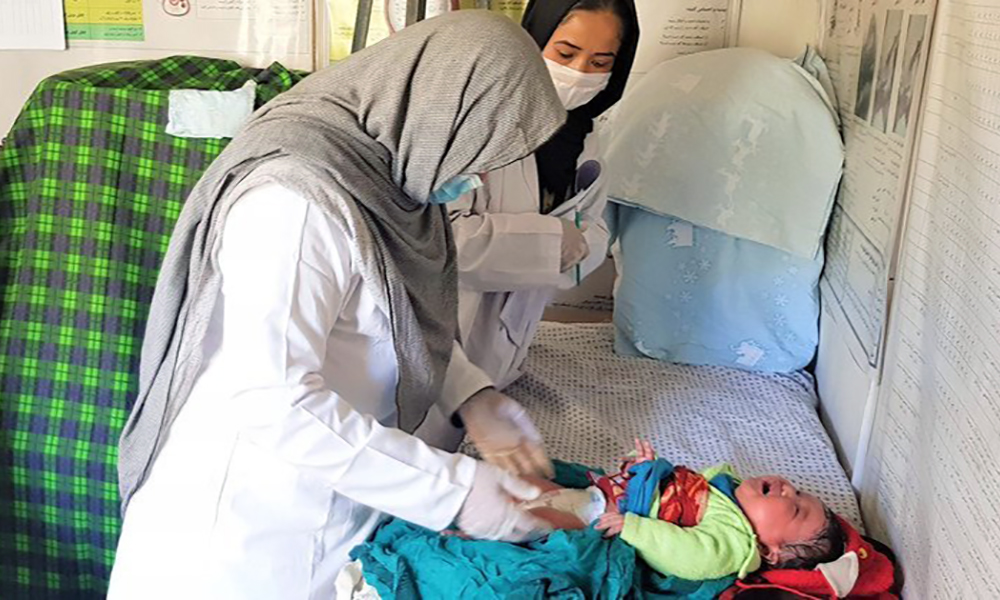
Cuts to aid budgets are threatening to undermine years of progress in reducing the number of women dying during pregnancy and childbirth, and could lead to a rise in deaths, the United Nations has warned.
Globally, there was a 40% decline in maternal deaths between 2000 and 2023, a report by UN agencies including the World Health Organization (WHO) showed on Monday, largely due to better access to essential health services.
That could now go into reverse, the WHO said in a statement accompanying the report which did not mention specific cuts but came in the wake of a foreign aid freeze by the U.S. government and the ending of funding through the United States Agency for International Development (USAID) for many programmes.
Other donor countries including Britain have also announced plans to cut aid budgets.
“One of the headline messages is that the funding cuts risk not only that progress, but we could have a shift backward,” said Dr Bruce Aylward, Assistant Director-General, Universal Health Coverage at the WHO.
The cuts have had “pandemic-like effects” on health systems globally and could have a “more structural, deep-seated effect,” Aylward added.
The WHO said the cuts were already rolling back vital services for maternal, newborn and child health in many countries, reducing staff numbers, closing facilities and disrupting supply chains for supplies including treatments for hemorrhage and pre-eclampsia.
Cuts to other areas, such as malaria and HIV treatment, would also impact maternal survival, the UN said.
Even before the aid cuts led by the United States, things were backsliding in some countries, and progress has slowed globally since 2016, the report said.
In 2023, despite recent progress, a woman still died roughly every two minutes – around 260,000 in total that year – from complications that were mainly preventable and treatable, it added.
The situation was particularly bad in countries affected by conflict or natural disaster, although the U.S. itself is one of only four countries to have seen its maternal mortality rate increase significantly since 2000, alongside Venezuela, the Dominican Republic and Jamaica.
The COVID-19 pandemic also had an impact, the report said: 40,000 more women died due to pregnancy or childbirth in 2021, bringing the total number of deaths that year to 322,000.
“While this report shows glimmers of hope, the data also highlights how dangerous pregnancy still is in much of the world today – despite the fact that solutions exist,” WHO Director-General Tedros Adhanom Ghebreyesus said.
Health
Global organizations warn of health crisis due to aid cuts in Afghanistan

Global organizations are raising alarms about the impact of aid cuts on Afghanistan’s health sector and the reduction in funding for humanitarian organizations operating in the country.
UN-affiliated bodies have stated that the complete suspension of aid from the United States and the reduction of the 2025 budget could lead to the closure or suspension of nearly 2,000 healthcare centers across Afghanistan.
The United Nations Office for the Coordination of Humanitarian Affairs (OCHA) has further warned that if only 25 percent of the required funding is provided, 7 million out of the 9.3 million people in need of medical services will be left without access to healthcare.
The report highlights that without immediate and sufficient funding, child mortality rates could rise sharply, as malnutrition remains one of the leading causes of death for children under the age of five.
The World Food Programme (WFP) has also warned that Afghanistan is facing a severe malnutrition crisis among children, with the number of malnourished children expected to reach 3.5 million by 2025.
Recent reports from the WFP reveal that 8 out of 10 families in Afghanistan are unable to afford a sufficient diet, and 3 out of 4 families are being forced to borrow money to purchase basic food items.
UN agencies have stressed the urgent need for the international community to address the humanitarian crisis in Afghanistan and provide the necessary aid.
This comes after Afghanistan’s Ministry of Economy dismissed reports from some international organizations about the growing poverty in the country, labeling them as exaggerated and far from reality.
-

 International Sports3 days ago
International Sports3 days agoIPL 2025: Robo-Dog ‘Champak’ explained
-

 International Sports5 days ago
International Sports5 days agoIPL 2025: 14-year-old Vaibhav Suryavanshi becomes youngest IPL player
-

 Latest News4 days ago
Latest News4 days agoAriana Afghan Airlines increases flights to China
-

 World4 days ago
World4 days agoPentagon chief Hegseth shared sensitive Yemen war plans in second Signal chat, source says
-

 Latest News3 days ago
Latest News3 days agoAfghan-American appointed to lead US policy on Afghanistan
-

 Latest News4 days ago
Latest News4 days agoChina invites various Afghan delegations to attend Shanghai forums
-
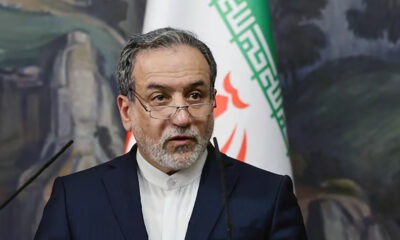
 Regional3 days ago
Regional3 days agoIran’s top diplomat to visit China on Tuesday
-
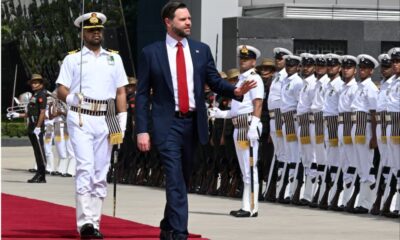
 Regional4 days ago
Regional4 days agoJD Vance arrives in India, to hold talks with Modi under US tariffs shadow


